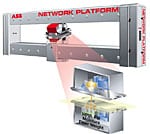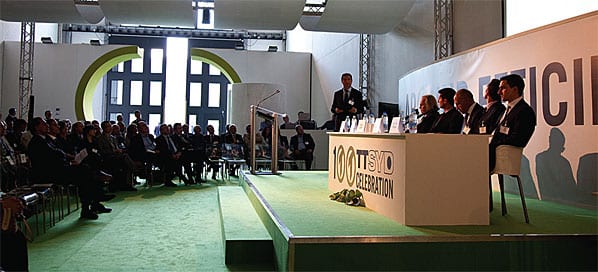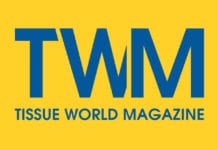Global
United Converting and IKS form joint venture
Italy’s United Converting and Americanbased International Knife and Saw (IKS) have formed a joint venture to sell converting equipment throughout the Americas.

United Converting Americas has appointed Murray Godwin, of IKS, as managing director. He told TW: “In the tissue market we’re focusing on converters that manufacture industrial and Away-from- Home products.
“But that’s not to say that we wouldn’t recognise and pursue opportunities in the retail, bath and towel markets, which we will also do.” He added that the joint venture also extends to Italy, where IKS’s products are sold and distributed to the European tissue market.
United Converting also has branches in the UK and Japan. It was founded in 2004 and produces high-quality machines and accessories for the paper converting industries.
IKS produces precision saws, blades, knives and other cutting tools for the paper converting industry.
ABB targets tissue market with HPIR -FW Sensor launch
ABB has launched its High-Performance Infrared and Fibre Weight (HPIR-FW) sensor to help tissue

manufacturers improve moisture and fibre weight measurements.
The sensor directly measures the most critical parameters of machine direction and cross direction control using a single sensor module, which allows tissue makers to have better control over their fibre and energy costs.
It measures fibre weight, web moisture and web temperature simultaneously with one infrared instrument, without the need for radiological isotopes.
Steven St. Jarre, global sales and marketing manager for ABB Quality Control Systems, said: “The HPIRFW sensor helps tissue makers meet today’s profitability and sustainability challenges because it gives them the ability to respond more quickly and flexibly to global customer demand.”
Langhamer sets new standards with “The Wave”
Langhammer has expanded its product portfolio with “The Wave”, a unique combination of conveyor and layer gripper.
It takes products from a conveyor lane and places them independently of configuration or product safely on a pallet.
Enrico Pes, managing director of Langhammer, said: “I see a great advantage in the compact design of our new development because conventional systems require up to 50% more space.”
He added that the product is collected by a split gripper apron while a foursided compression aligns the layer formation on all four sides.
Typical clamp gripper systems apply pressure on the product layer.
Langhammer provides transport and palletising systems for the tissue and paper converting industries, and this product can be used with almost all products.
Strong Growth Helping Tissue Exceed Newsprint Consumption

Global tissue growth will have exceeded newsprint consumption for the first time ever in 2012, according to Esko Uutela, principal, tissue, RISI.
This year will witnessed 1.3m tonnes of tissue volume growth which will bring tissue consumption close to 32m tonnes – a figure that will exceed global newsprint consumption and is “of great importance for the industry”.
Speaking at Toscotec’s 100 SYD event which celebrated the sale of the supplier’s 100th Steel Yankee, Uutela said that in 2011 the world’s tissue consumption stood at 30.5m tonnes. This consists of: 27.2% in North America, 20.9% in western Europe, 17.6% in China, 11% in Latin America, 6.1% in Japan, 5.6% in Far East Asia, 5.1% in eastern Europe, 3.3% in N&M East, 1.9% in Africa and 1.3% in Oceania.
The normal growth rate is back on track after a small break due to the recession in 2009, averaging 4.3% in 2011/12. More and more of this growth is increasingly focused on emerging markets, with China and Latin America showing the best prospects, with 40% of global growth in China at 6m tonnes, followed by Latin America at 2.3m tonnes.
While the growth path of other paper grades continues to decrease, Uutela said the outlook for the tissue business is “promising”.
He said: “The future is bright and we expect the 4.3% growth rate to continue.
“A vast number of new world-class PMs are on order in China, with more planned. Currently it does look like too much capacity is coming on stream there in 2012/13.
“However, several projects are delayed and this will help avoid serious overcapacity.”
He added that competition is intensive and that cost competitiveness is increasingly important and that more than 140 tissue Steel Yankee dryers have now been delivered or ordered. Recent major deliveries to China and other Asian countries are the dominant feature. Based on committed orders until the end of September 2012, regional distribution of SYD sales for tissue between 2000-2014 found that some 34.4% were in China, 22.5% in Europe, 21.8% in Far East Asia, 14.8% in Latin America, 4.2% in Africa and 2.8% were in N&M East with 1.4% in Japan.
P&G looks to trim 5,700 jobs in 2013; tissue division not exempt
Global tissue growth will have exceeded newsprint consumption for the first time ever in 2012, according to Esko Uutela, principal, tissue, RISI.
This year will witnessed 1.3m tonnes of tissue volume growth which will bring tissue consumption close to 32m tonnes – a figure that will exceed global newsprint consumption and is “of great importance for the industry”.
Speaking at Toscotec’s 100 SYD event which celebrated the sale of the supplier’s 100th Steel Yankee, Uutela said that in 2011 the world’s tissue consumption stood at 30.5m tonnes. This consists of: 27.2% in North America, 20.9% in western Europe, 17.6% in China, 11% in Latin America, 6.1% in Japan, 5.6% in Far East Asia, 5.1% in eastern Europe, 3.3% in N&M East, 1.9% in Africa and 1.3% in Oceania.
The normal growth rate is back on track after a small break due to the recession in 2009, averaging 4.3% in 2011/12. More and more of this growth is increasingly focused on emerging markets, with China and Latin America showing the best prospects, with 40% of global growth in China at 6m tonnes, followed by Latin America at 2.3m tonnes.
While the growth path of other paper grades continues to decrease, Uutela said the outlook for the tissue business is “promising”.
He said: “The future is bright and we expect the 4.3% growth rate to continue.
“A vast number of new world-class PMs are on order in China, with more planned. Currently it does look like too much capacity is coming on stream there in 2012/13.
“However, several projects are delayed and this will help avoid serious overcapacity.”
He added that competition is intensive and that cost competitiveness is increasingly important and that more than 140 tissue Steel Yankee dryers have now been delivered or ordered. Recent major deliveries to China and other Asian countries are the dominant feature. Based on committed orders until the end of September 2012, regional distribution of SYD sales for tissue between 2000-2014 found that some 34.4% were in China, 22.5% in Europe, 21.8% in Far East Asia, 14.8% in Latin America, 4.2% in Africa and 2.8% were in N&M East with 1.4% in Japan.























